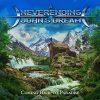Satyricon – “No One Remembers a Coward”
Sunday, 24th November 2013If the black metal keyboard ninjas/message board dwellers had their way, Satryicon would be on at least, the fifth mutation of their Nemesis Divina classic. It’s just the way things are; either you don’t change and do insincere reproductions of what made you popular, or you push ahead and expand horizons, all the while sticking to your core fundamentals. And since 1999, the band has done the latter, from the unforgiving Rebel Extravaganza, through mid-00’s pillar Now, Diabolical, to their latest self-titled effort, which again, has all sorts of knickers in a twist for its stripped-down, basic sound, as well as an all-clean vocal jaunt in the form of the magnificent “Phoenix.”
When talking to band leader/visionary Satyr (real name: Sigured Wongraven), it’s easy to get a sense of how worldly the man is. His recent experiences away from the black metal scene have given him a different view of life and his place in it, which provided the necessary inspiration for the band to push harder, even when things seem to be at their best. It’s this sort of progressive thinking and willingness to be individualistic that has made Satyricon one of Norway’s top metal bands, not to mention one of black metal’s hallmark outfits.
Armed with fresh insight and plenty of stories to tell, a very talkative and personable Satyr rung DR up on a Saturday morning fresh from tour rehearsals, which prompted us to open discussion on the band that backs not only him, but drumlord Frost as well. Read on…
Dead Rhetoric: You normally bring in new people for touring purposes. How’s that been working out of late?
Satyr: We’ve been going on for over 20 years and usually you’ll have some exceptions like Steinar [Gundersen], the lead guitar player, he’s been playing with us for 14 years without missing a show. And then you have some dudes who will do one or two tours and that’s it. Most of them, they usually last six to seven years before they venture off into something else, so we’re in the middle of replacing those guys.
What I was looking for…someone who is young and driven because I feel the longer we’ve been going and the more experience we gain, we realize that, if you can choose between someone who is extremely good, but not motivated for the right reasons, it’s better to have someone who is good, but is extremely motivated. Being in an underground band is a very demanding existence. There’s no way the income will justify the time you spend rehearsing, travelling and all the stuff you go through, so you really have to want to decide this is what you want to do, because it’s not like financially lucrative or anything like that.
Dead Rhetoric: It makes me think of when you first got Frost in the band, and as the story goes, he wasn’t adept at doing blast-beats or any mode of extreme metal drumming, but you saw the potential and work ethic he had.
Satyr: He said [it] himself or I guess he’s still saying that [laughs] he’s still surprised by the fact I choose him [laughs]. I guess the thing with Frost when he came into the band, he had more or less decided a few months back at the time that he was going to quit playing drums and that he was just going to devote his life to being a black metal fan. Through a mutual friend, which was Faust, the drummer in Emperor, I heard about him and he said I should try him out for Satyricon. Then he showed up and he hadn’t played drums in three months and he was really hung-over. [laughs] He didn’t play very well, but the basic stuff was there. He just came across to me as someone who understood what this is all about. It seemed like he had black metal in every cell in his body and that’s the kind of people you want to surround yourself with.
Dead Rhetoric: You made a quote after the cycle for The Age of Nero completed that you were going to do things differently for the band going forward, that it was time for you to “re-examine” the organizational structure of Satyricon. In what ways have things changed as a result of this leading up to the new album?
Satyr: [pauses] That change is still going on. There are many things…we’ve replaced almost all of our crew. And they are important people, they can really influence the outcome of a show both in a good and bad way. They can be there to save your ass, but at the same time, you can do everything you’re supposed to do and if they screw up, you’re the guy that’s going to look like an idiot. We replaced almost all of them; we’ve replaced the management, we’ve replaced the main agent which is the guy in charge of Europe; we’ve replaced one of the guitar players, and we’re in the midst of replacing one of the keyboard players.
When it comes to the studio, when looking at this record, we sent out inquires to some of the very best mix engineers and producers in the world and not one of them did not respond. Some of them came back asking about money, some came asking about schedule, some people said they wanted to hear some stuff, blah, blah, blah. Then one guy said “I’m well familiar with the band. I really like Satyricon and I’m confident I can help them get a really authentic sound.” And I read that email that was forwarded to me and I said, “That’s the guy that should mix this record with me.” And that was Adam Kasper from Seattle.
Dead Rhetoric: While still on the topic of your organization, it’s not like the last album was a failure. You’ve had a significant amount of success, especially in Europe. So, how much examination went into making these kinds of decisions?
Satyr: I think allowing myself that kind of distance…I guess it was around Christmas of 2009 that we finished the touring cycle for The Age of Nero, and we made the decision in August that we were going to do that. The reason why I wanted to do that is that I felt at that point, the smallest, not even arguments, just disagreements would turn into huge fights and everything was so overly dramatic and I’ve seen that kind of stuff before and I’ve worked with tour managers who dealt with that stuff. If it was a business and I was an executive, I would make changes. I started thinking to myself when I was in that situation that one thing is to be the guy with that extra votes and possibility to force things through and turn them down, but you also have to provide leadership in a situation like this. I just wondered what I was going to do, and I decided I was going to impulse-break. And everyone was saying “Why would you want to do that now?”
Dead Rhetoric: That’s what I was wondering too.
Satyr:The Age of Nero turned out commercially, to be our most successful record ever and we knew at the time that it would be because it was almost there when we made that decision. I also know another thing, like some technical stuff, that if you have a really solid crew and you stop playing on a regular basis, you will lose them because they’re all freelancers and there’s a lot of work out there for them. And we did lose some of the key members of our crew like I anticipated, but I don’t know…I didn’t want to make another The Age of Nero. I have that record in my veins and I couldn’t get away from that if I was to make another record right away.
As far as touring goes, I seriously considered and I was looking to sell my apartment that I was really liking a lot and replacing it with a one-bedroom, a 1,300 square meter living space. I thought to myself, “I’m never home anyway, so why should I pay for this?” I thought this is wrong, I have a life, I have family, I have friends, and I have many interests in life. I never dreamt about sleeping in a bunk in the back of a tour bus for the rest of my life and I never dreamt about getting in the 50th security line at the airport in a month. I just felt my life was onboard a tour bus, or getting in line at the airport security. As a recording artist, it’s just amazing how much time you spend not playing music. [laughs]
I just wanted to make changes. For example, I wanted to work more in the studio, play less live, and work with people that were there because that’s the only place they wanted to be, not because of the money. I don’t know why people go to black metal anyway if it was for the money. There are such huge limitations when it comes to the stuff. For example, if you’re a really qualified guitar player that can play all kinds of metal genres, play generic heavy metal or something like that. Not black metal.
Pages: 1 2























